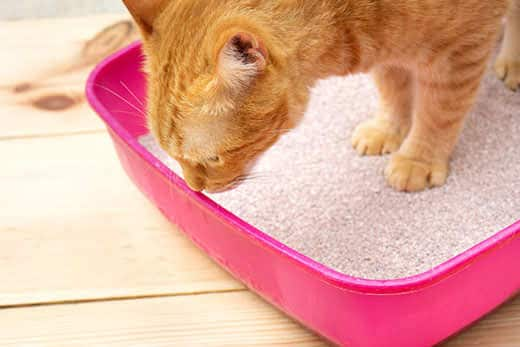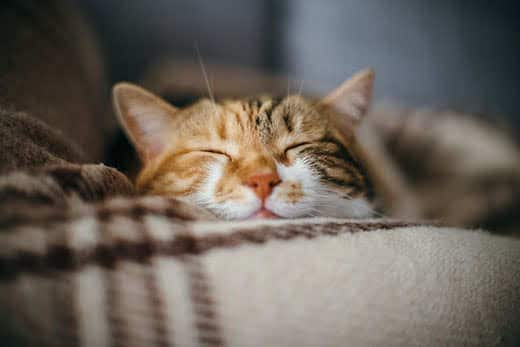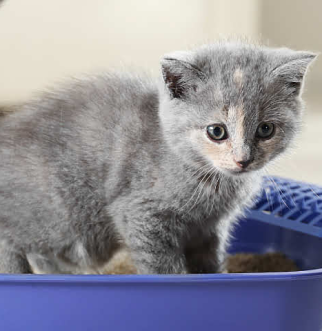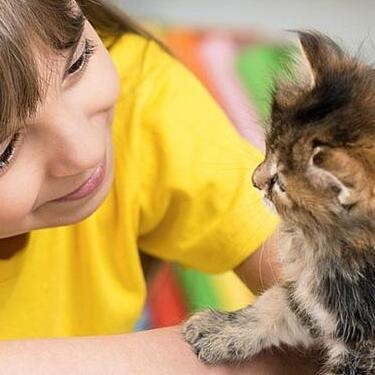
-
Find the right food for your pet
Take this quiz to see which food may be the best for your furry friend.
Find the right food for your pet
Take this quiz to see which food may be the best for your furry friend.
Featured products
 Adult 7+ Perfect Digestion Chicken, Whole Oats & Brown Rice Recipe Dog Food
Adult 7+ Perfect Digestion Chicken, Whole Oats & Brown Rice Recipe Dog FoodScience Diet's breakthrough nutrition supports ultimate digestive well-being & healthy microbiome for dogs age 7+
Shop Now Small & Mini Savory Stew with Chicken & Vegetables Dog Food
Small & Mini Savory Stew with Chicken & Vegetables Dog FoodA delicious complement to the nutrition of Science Diet Small & Mini 7+ dog food
Shop Now Adult Healthy Cuisine Roasted Chicken, Carrots & Spinach Stew Dog Food
Adult Healthy Cuisine Roasted Chicken, Carrots & Spinach Stew Dog FoodDelicious roasted chicken paired with tender vegetables in a succulent stew
Shop NowFeatured products
 Adult Savory Entrée Can Variety Pack Cat Food
Adult Savory Entrée Can Variety Pack Cat FoodPrecisely balanced nutrition with the delicious taste of savory minced chicken to help fuel the energy needs of cats during the prime of their life
Shop Now Adult 7+ Tender Tuna Dinner Cat Food
Adult 7+ Tender Tuna Dinner Cat FoodWith delicious chunks in a decadent gravy
Shop Now Adult 7+ Senior Vitality Chicken & Vegetable Stew Cat Food
Adult 7+ Senior Vitality Chicken & Vegetable Stew Cat FoodImproves Everyday Ability to Get Up & Go
Shop Now -
Dog
- Dog Tips & Articles
-
Health Category
- Weight
- Food & Environmental Sensitivities
- Urinary
- Digestive
- Joint
- Kidney
-
Life Stage
- Puppy Nutrition
- Adult Nutrition
- Senior Nutrition
Cat
- Cat Tips & Articles
-
Health Category
- Weight
- Skin & Food Sensitivities
- Urinary
- Digestive
- Kidney
-
Life Stage
- Kitten Nutrition
- Adult Nutrition
Featured articles
 Why Are Dogs and Cats So Cute?
Why Are Dogs and Cats So Cute?If waggy puppy dog tails and furry kitten yawns make you swoon, you're not alone. Why are cats so cute? And, dogs too! Let's find out!
Read More Does My Pet Hate Me?
Does My Pet Hate Me?Learn tips for bonding with your pet if you've ever thought, 'My dog doesn't like me, or 'Why do I have a standoffish cat?'
Read More Do Dogs and Cats have Belly Buttons?
Do Dogs and Cats have Belly Buttons?Learn whether cats & dogs have belly buttons like humans, what the function is, and if there are any health concerns associated with it.
Read More -


When your feline friend reaches about 7 years old, it's time to consider investing in senior cat accessories. Items such as ramps, cozy bedding and a senior cat litter box can help ease your beloved pet into their golden years.
Accessories for Aging Cats
As cats age, their lifestyle needs change — and as a pet parent, it's your job to accommodate them. These changes won't necessarily be big or obvious, either. Dr. Emily Levine, an animal behavior resident at Cornell University College of Veterinary Medicine says, "We remember to give them medications, but we tend to forget about addressing food, water and litter box issues."
Adjusting how you meet your kitty's basic needs as they age can go a long way toward helping them enjoy their later years.
Litter Box Changes
Your cat's joints age right along with them. Arthritis can make it more difficult to get in and out of a litter box. Some cats may stop using the box altogether. If you notice either of these behaviors, reach out to your veterinarian to rule out a medical reason why your cat won't use the litter box. Once you've addressed any health issues, focus on adapting their current box or creating a senior cat litter box.
A litter box for senior cats should have low walls to allow easy entry. You can also make a DIY senior cat litter box by cutting out a low doorway in a plastic storage bin with high walls — this will provide privacy for your cat and make cleanup easier for you.

Place a litter box on each floor of your home, so your cat doesn't have to go far to find a bathroom nor climb stairs to access it. Ensure the litter isn't too deep nor too shallow, clean it at least once a day and reward your kitty for using it properly.
If your cat is incontinent or has accidents outside the box, cat diapers are an option. Just don't let your cat wear diapers for more than one to two hours at a time, emphasizes Best Friends Animal Society, as "they trap urine and feces, prevent air flow and encourage painful sores and infection." Instead, set up a litter box area that suits your kitty's needs and preferences — which may include pee pads. Additionally, make sure to tell your vet about any incontinence, as this is likely the sign of a larger health issue that can be common in cats. They can advise you on how to address the situation if an underlying health condition is determined.


Tasty Tips
Making Your Home Easier For Senior Cats
Don't worry: You won't have to revamp your entire house to accommodate your senior kitty. Small changes can make a big difference. For example, you can ensure your cat is still able to access their favorite spots, like your bed and couch, by placing sturdy pet ramps or stairs next to them. These are especially helpful if your cat likes to lounge in a cat condo or sunbathe near a window.

You probably know how much your furry friend loves a warm bed, and this love for cozy spots only increases as cats age. Keep their bed away from drafty spaces and consider getting them a heating pad, especially if your cat has arthritis. Extra night lights can also make it easier for them to get around if their eyesight is declining.
Also, consider adding in a rug or two to slick surfaces such as tile or hardwood floors to give them more traction and make it easier on their joints.
Health and Nutrition
Maintain a regular grooming routine for your cat, including brushing or combing their fur, cleaning their teeth and, because older cats tend to groom themselves less, giving your cat a bath.
Proper nutrition is important for your cat during every stage of their life, but especially in their later years. The best cat food contains all the required nutrients for your aging cat's needs, including support for their brain function and weight control.
Science Diet Senior Vitality takes into account the science of aging pets to give your older kitty just what they need: fruits, vegetables, fatty acids and antioxidants, plus vitamins, minerals and amino acids. This nutritional balance will keep your senior cat an active cat.
Many cats remain alert and agile well into old age. With a bit of accommodation, some key senior cat accessories and lots of love, older cats can live a long, happy and healthy life.


Christine O'Brien is a writer, mom, and long-time cat parent whose two Russian Blues rule the house. Her work also appears in Care.com, What to Expect, and Fit Pregnancy, where she writes about pets, pregnancy, and family life. Find and follow her on Instagram and Twitter @brovelliobrien.
Related products
Related articles

How do you get a cat to lose weight? Learn all about cat foods for weight loss, including how to choose weight control cat food and exercise tips.

What is the best food for an overweight cat? Learn all about weight control food for cats, including what's in it and how it works.

Cats are naturally very clean and chances are your kitten will already have learned how to use the litter box from her mother before she comes to live with you.

Discover how to train your cat, starting with very basic first steps that both reward good behavior and discourage the bad.

Put your cat on a diet without them knowing
Our low calorie formula helps you control your cat's weight. It's packed with high-quality protein for building lean muscles, and made with purposeful ingredients for a flavorful, nutritious meal. Clinically proven antioxidants, Vitamin C+E, help promote a healthy immune system.
Put your cat on a diet without them knowing
Our low calorie formula helps you control your cat's weight. It's packed with high-quality protein for building lean muscles, and made with purposeful ingredients for a flavorful, nutritious meal. Clinically proven antioxidants, Vitamin C+E, help promote a healthy immune system.

